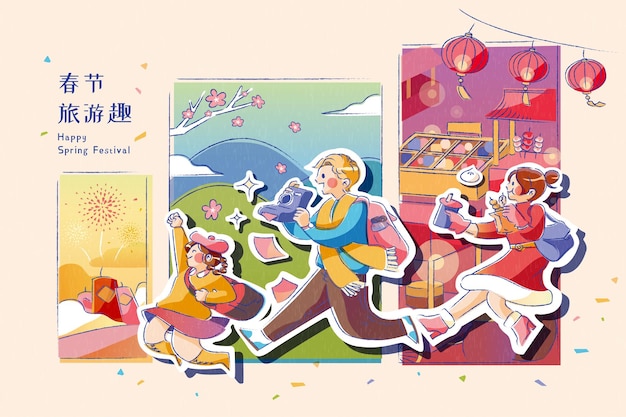Imagine this: you’re taking in the breathtaking view of a sunset over the mountains, or the mystical aura of a cloud forest, or the mesmerizing crystal blue waters of Thailand. We often don’t realize how lucky we are to witness such beauty. But what if one day, you couldn’t see it anymore? How would you cope? This thought has always intrigued me, especially since I’ve never even had a minor injury like a sprained finger!
A while back, I got an email from a reader, Tyler, who introduced me to his friend Dan. Dan is legally blind, with extremely low vision. But what’s inspiring is that Dan didn’t let his loss of sight stop him from exploring the world. He was born with normal vision but started losing it in his teenage years. Yet, he adapted and continued to travel.
As I got to know Dan and Tyler more, I felt compelled to share their story. So, here’s Dan’s inspiring journey and some valuable advice for all of us.
Dan, a 31-year-old from Nobleton, Canada, started losing his sight as a toddler. A family friend noticed him sitting unusually close to the TV, straining to see the planes in Top Gun. He ended up needing very thick corrective lenses. At seven, an accidental kick to the back of his head by a friend resulted in a detached retina, leaving him blind in his left eye.
In 2008, his right eye’s retina started detaching. The surgery to repair it was mostly successful, but the scar tissue didn’t heal properly. Despite two more operations over the next two years, the recovery was slow. For a significant period, Dan was completely blind and extremely sensitive to light. It was only much later that he regained some blurry vision, along with retinal scar damage.
After a long battle with depression over his vision loss, Dan decided to adapt and keep moving forward. Living with a vision disability has its challenges, like needing his housemates to keep cupboard doors shut, not leave knives in the sink, and not leave anything on the floor that wasn’t there before. But he’s learned to navigate these challenges and even the little things that can be embarrassing, like dealing with glass doors.
Despite the challenges, Dan’s passion for travel, inherited from his nomadic parents, keeps him going. His mother, who is completely blind and travels with a guide dog, is a huge inspiration for him. She travels across Canada and beyond, speaking for the Lions Foundation of Canada, an organization that provides dog guides to people with various disabilities.
Dan loves meeting new people during his travels. He enjoys their curiosity about his vision, his cane, and his travels, and he loves sharing his stories. He’s learned to navigate the challenges of traveling with low vision, like dealing with inaccessible buildings and services. He uses his iPhone to take photos of train times and zoom in on them, allowing him to move at his own pace.
Dan’s advice for other low-vision or blind travelers is to use common sense, trust your instincts, and not be afraid to change your situation. He encourages them to travel and show people that they can do it just like anyone else, regardless of their vision.
There are many resources available for blind or visually impaired travelers, like the CNIB in Canada and the RNIB in the UK. Non-specific resources like Facebook and Reddit are also great for connecting with other disabled people. Couchsurfing is a fantastic way to meet people who are willing to show you around.
Dan’s family, who are all well-traveled, support his traveling adventures. His next adventure might be exploring his own country, Canada, which is the second-largest country in the world. He’s also considering visiting Australia, New Zealand, Japan, and South America.
On Dan’s bucket list is learning to sail and going on a few road trips. He’s never seen the Pacific and wants to change that. He also wants to go on a blues/music tour to Chicago, Memphis, and New Orleans.
Dan’s advice for people with disabilities is to remember that nothing worth doing is ever easy. There will be times when you mess up, get hurt, feel embarrassed, and get confused. But these are opportunities to learn, adapt, and educate others. You have to own your difficulties and hard times, and they’ll never own you.
